
|
Azerbaijan
Harshang-Afshan design rug on a yellow ground Code: AZSJB05N Size: 136x215cm Size (ft): 4'5"x7'0" Area: 2.92 m2 Density: ~165 000 knots per square meter, totally ~500 000 knots Colors: yellow, sky blue, dark navy blue, midnight blue, red, yellow, apricot, old purple, aqua green, medium green, hazelnut, maroon, chartreuse, cinnamon, dark brown, medium brown, ivory. Dyes: madder, weld (Reseda Luteola), onion skins, cochineal, indigo, pomegranate skins, walnut husks, natural dark brown sheep wool, natural ivory sheep wool. Materials: Handcarded and handspun wool for pile, ivory wool warps and ivory wool wefts (two shots). 1cm of flatwoven kilim ends at both sides. - wool on wool Knots: Gördes (Turkish, symmetrical) Pile height: 0.4cm Ends: five rows of decorative knotted meshwork Inscriptions: tamga (tribal seal) of Afshar tribe (top right), the word "Adn" ("Garden of Eden" - top center). 1441 (weaving date - top left)  Weaver: Kamila, Nazila Weaving Period: Three months Handwoven in Azerbaijan Design: The Harshang & Afshan design, featuring various palmettes and stylized flowers, is among the most classic formats. The design was extremely popular in both the Caucasian and Iranian Azerbaijan throughout the eighteenth and nineteenth centuries. It appears that the design was first used in the Khorasan district and in origin ultimately derives from the Isfahan 'in and out' palmette design. For a discussion of late eighteenth and early 19th century contrasting appearances of the harshang design, see Pamela Bensoussan, 'Four Harshang Pattern Carpets in the Museée des Arts Decoratifs', Hali, vol.3, no.3, pp.207-209. A similing human face is woven in between the palmettes at the bottom left corner of the central field. |
Contact us for more information about this rug

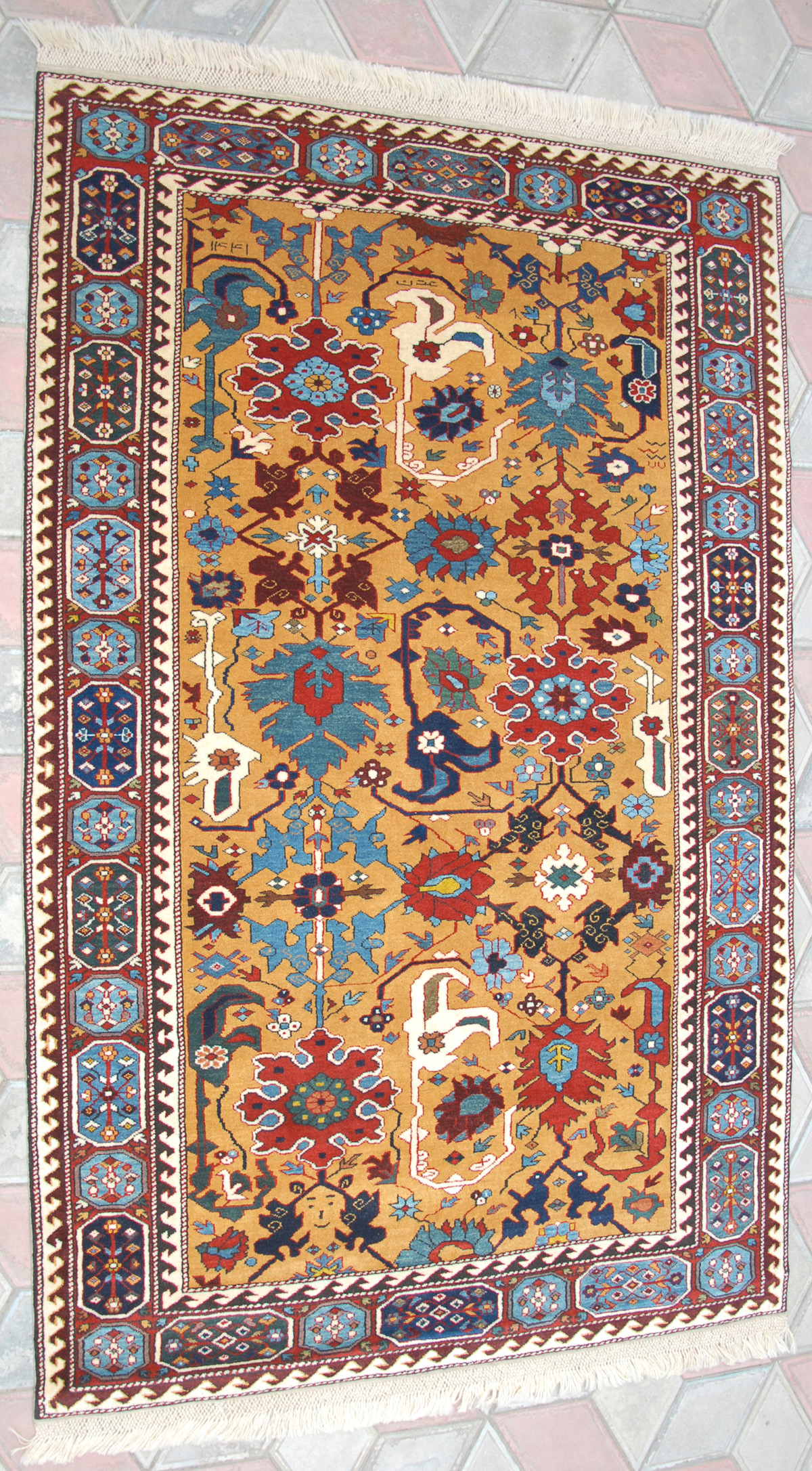
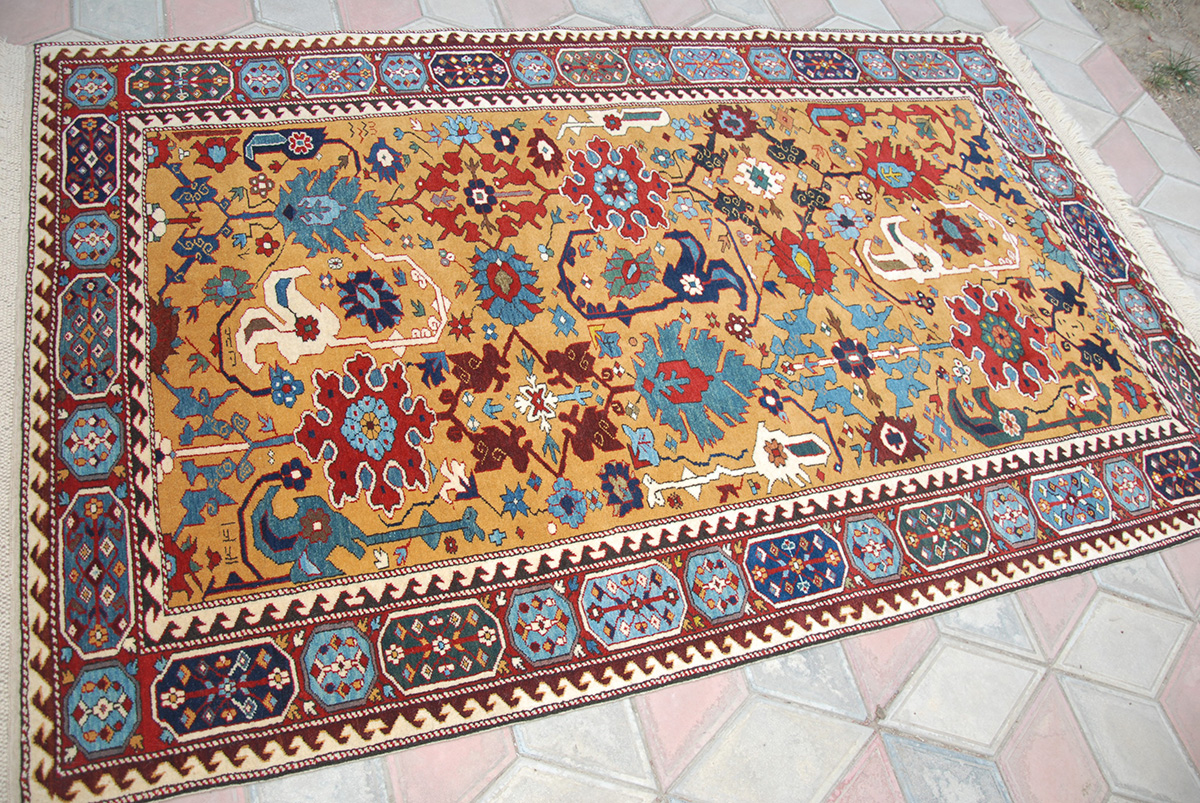
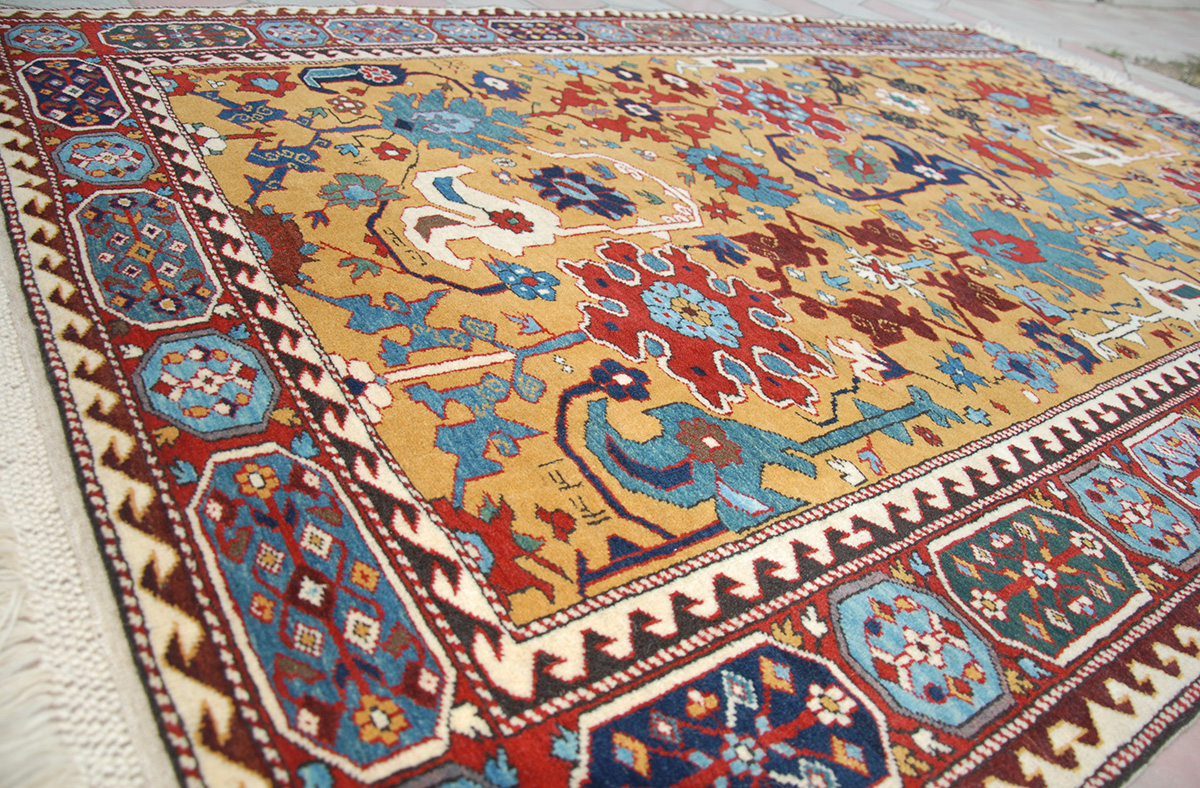

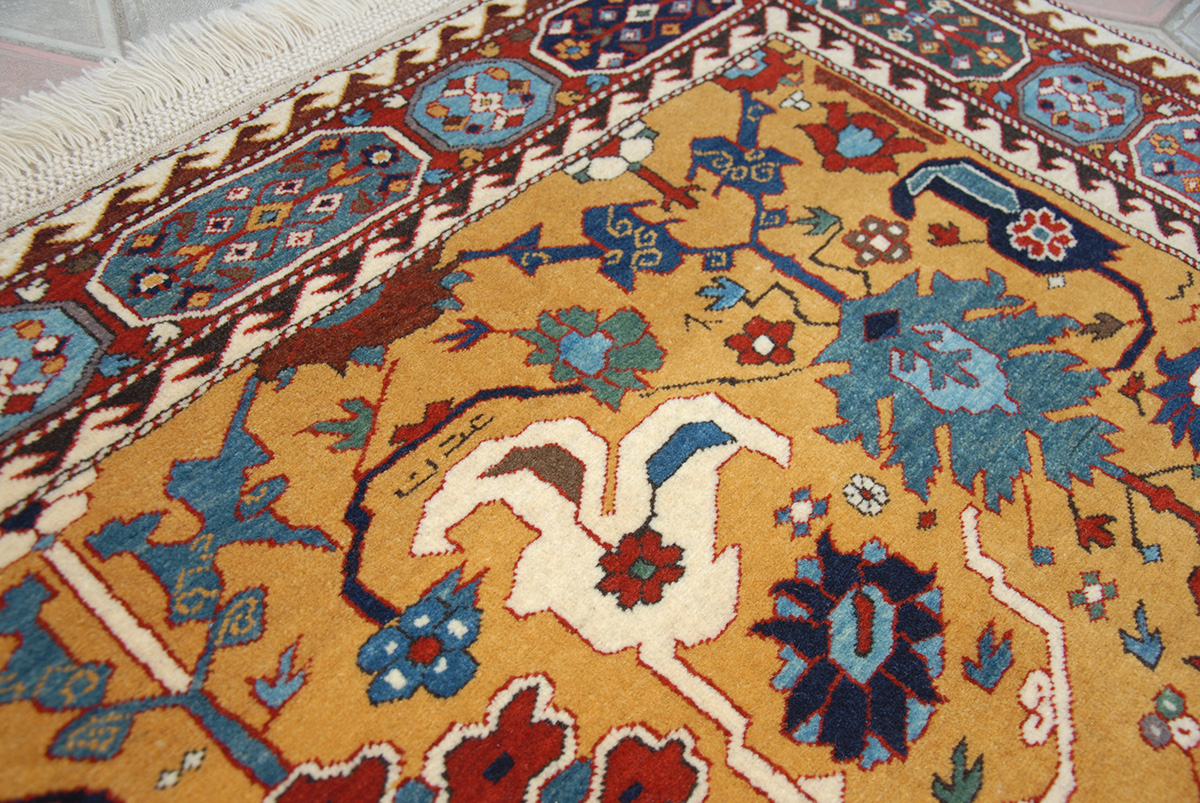
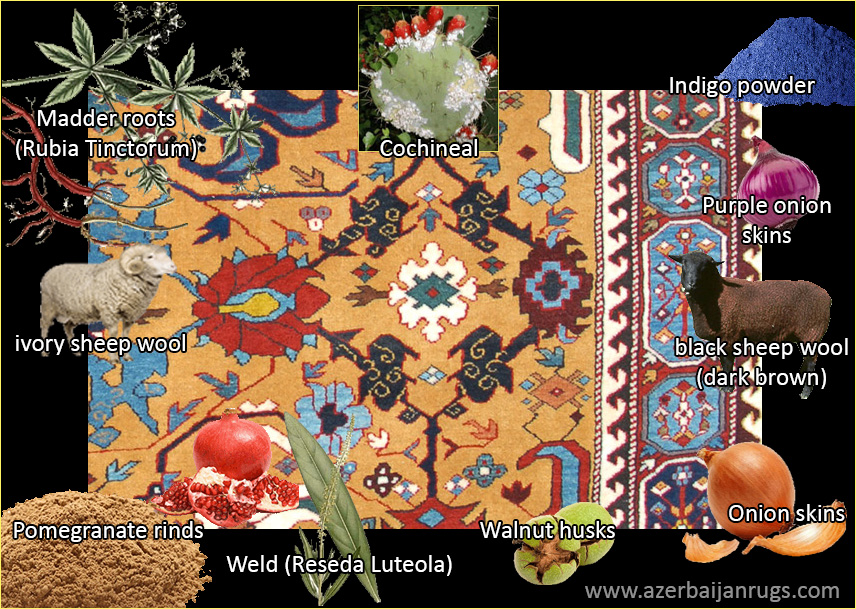
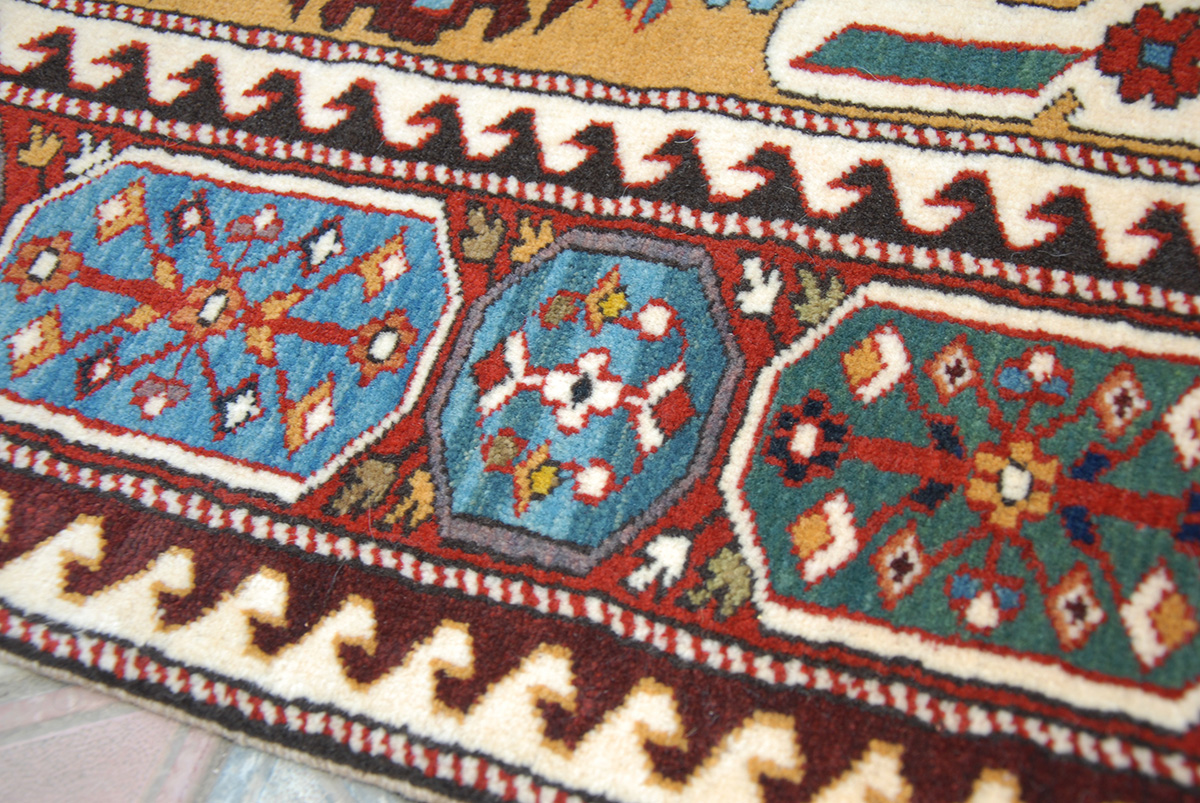
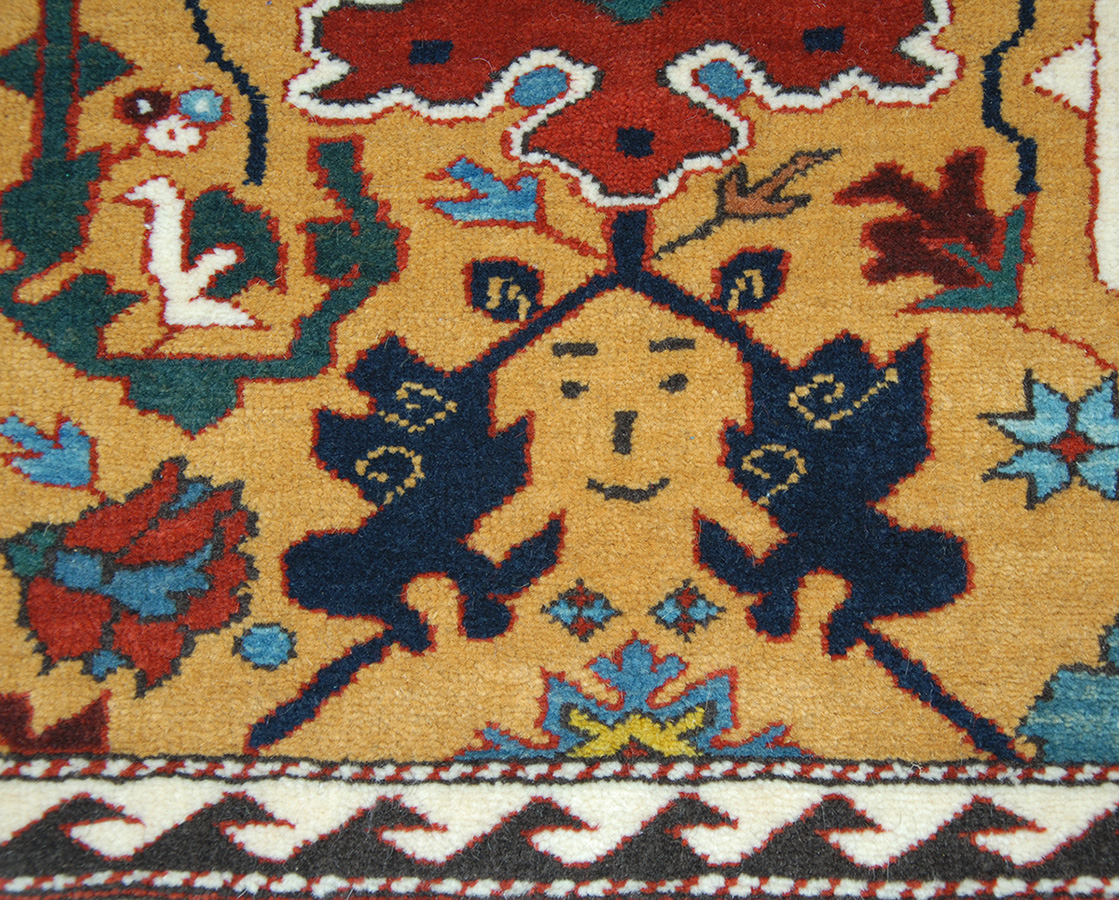
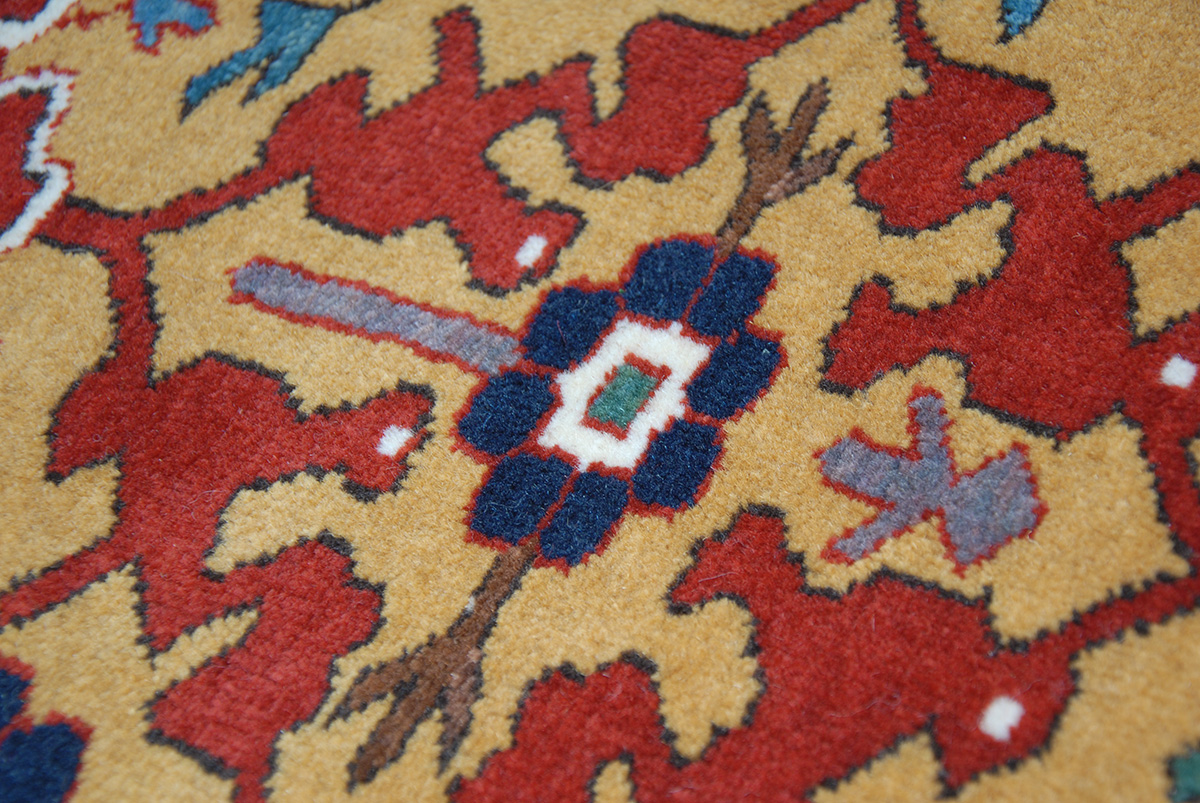
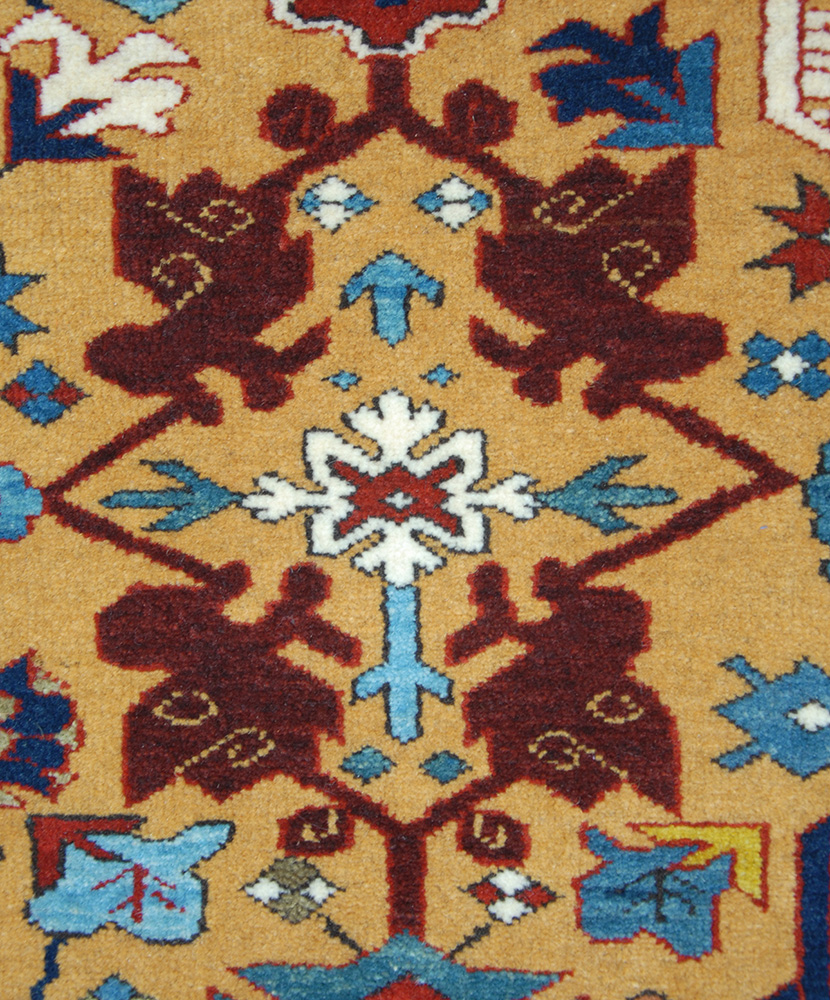
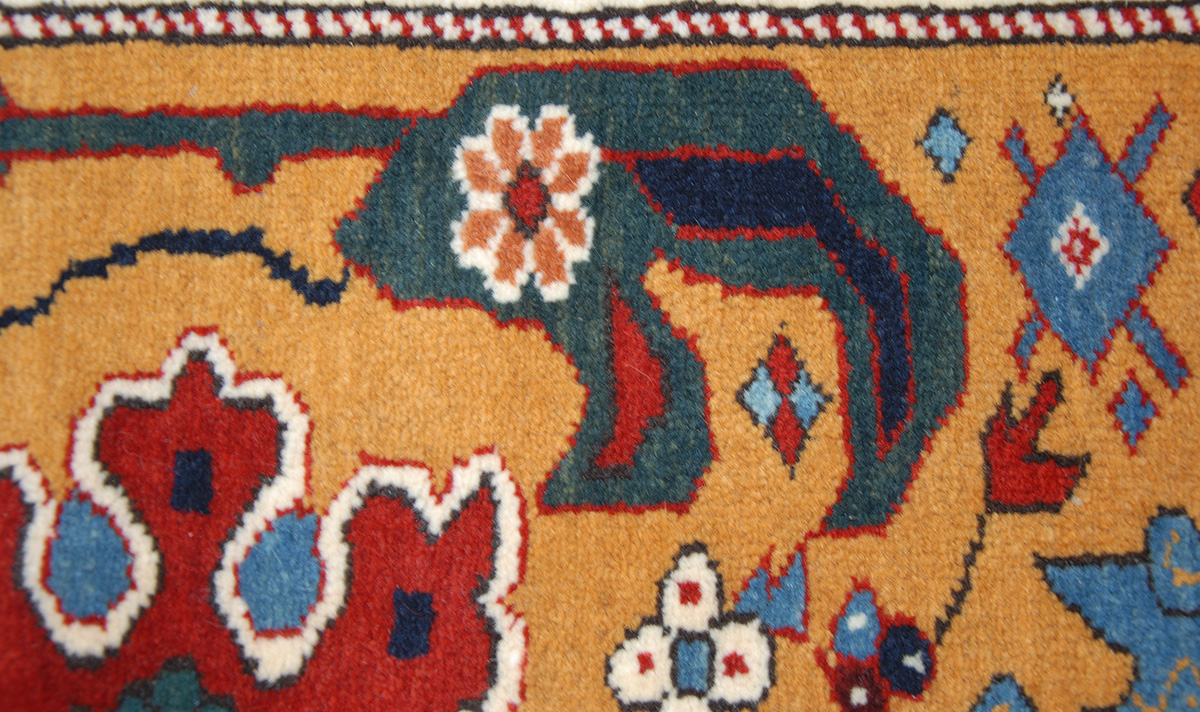
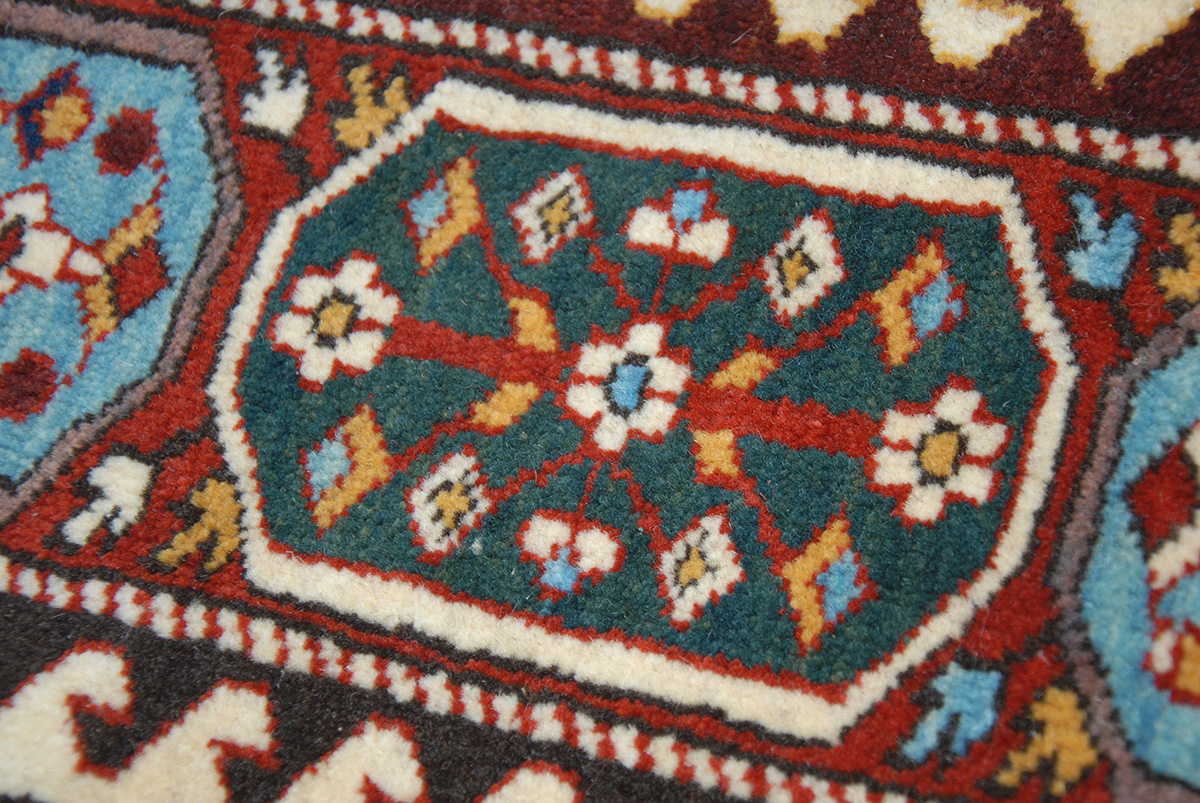
Contact us for more information about this rug

|
For more information about the above rug or to place an order please email
vd@azerbaijanrugs.com |